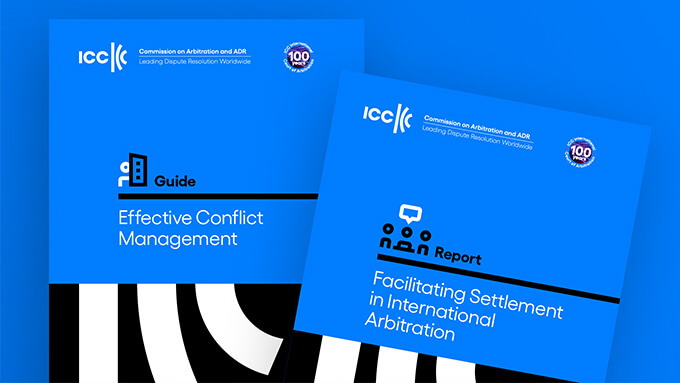Decision of the Court of Cassation General Assembly Allowing Bankruptcy Proceedings Before Turkish Courts Despite the Existence of an Arbitration Agreement
Introduction
Under Turkish law, parties may agree on the settlement of disputes that have arisen or may arise, regarding the rights that they can freely dispose of, by arbitration. However, disputes which are not subject to the will of parties, such as the disputes relating to in rem rights of immovables, bankruptcy law, family law are considered to be non-arbitrable.
In the decision of the Court of Cassation General Assembly (“CCGA”) dated 21.12.2021, numbered 2019/574 E. 2021/1710 K., these principles were discussed within the framework of the general bankruptcy procedures and bankruptcy proceedings regulated in the Execution and Bankruptcy Law numbered 2004 (“EBL”). The Court discussed whether a bankruptcy case can be examined before the courts despite the existence of an arbitration clause. This Newsletter article examines the relevant decision.
Dispute Subject to the Decision
The dispute arose from a construction agreement in return for a land share. The employer initiated a general bankruptcy proceeding against the contractor with the allegation that the contractor failed to complete and deliver the construction within the prescribed time. The contractor objected to the execution proceeding, and a bankruptcy case was filed by the employer for the annulment of the objection. The defendant contractor insisted on resolving the dispute through arbitration, stating that there was an arbitration clause in the contract signed between the parties.
Evaluation by the Court of First Instance and the Regional Court of Appeal
The court of first instance examining the dispute stated that objection and bankruptcy cases, in general, are unique cases that include several stages. In the first stage, a judgment should be made regarding whether the plaintiff is the creditor and about the amount of the claim. At the second stage, the bankruptcy of the defendant is ordered if legal conditions are met. In that regard, the judgment regarding the debt-credit relationship and the amount of debt between the parties would have to be made by the court dealing with the bankruptcy case unless there is a contrary provision in the contract between the parties, but if there is an arbitration clause in the contract between the parties, the substantive legal issues whether the receivable exists or not and if so, the amount of the same should be resolved before arbitrators in accordance with the arbitration clause stipulated the contract. Based on the above explanation, considering existence of the arbitration agreement in the concrete case, the court of first instance decided that the plaintiff should first resort to arbitration to obtain an award which determines the existence of the debt and amount of the receivable, and then, if necessary, to file a bankruptcy case in court against the defendant contractor based on the arbitrator's decision. The court then dismissed the case on the grounds that the employer was not eligible to initiate bankruptcy proceedings before the execution office against the contractor in a way that would eliminate the choice of authorized place of jurisdiction in the contract.
The Regional Court of Appeal rejected the plaintiff's appeal on the grounds that the decision of the first instance court was lawful.
Evaluation by the Court of Cassation
The 15th Civil Chamber of the Court of Cassation reversed the decision of the Court of Appeal, stating that the rejection of the case based on the arbitration objection was unlawful. The Court of Cassation reasoned that an arbitration clause can only be valid for disputes not related to public order, whereas the rule regarding the hearing of bankruptcy cases before Turkish courts is related to public order. They further explained that the procedure consisting of two stages in which the existence and amount of the claim is decided before arbitrators first and a bankruptcy case before courts is filed consequently, as described by the court of first instance, is contrary to the principle of procedural economy, that there is no justification for the division of bankruptcy cases into two stages in this way, and the case should have been examined and decided as a whole before the courts. In addition, the Court of Cassation further stated that it is one of the fundamental principles of the Code of Civil Procedure to conclude proceedings as soon as possible. Considering the fact that the bankruptcy case is subject to a simple procedure and that such a case should be examined and decided by the commercial court, the Court of Cassation found that forcing the claimant to resort to arbitration before initiating bankruptcy proceedings against the defendant restricts the freedom to seek rights and it is contrary to the principle of procedural economy.
Evaluation by the Court of Cassation General Assembly
The dispute was examined by the CCGA, after the court of first instance resisted the reversal decision given by the Court of Cassation. Referring to some scholars’ views, the CCGA emphasized that bankruptcy cases are cases that have consequences for public order, that they concern all creditors, and that it consists of successive proceedings starting with the execution proceedings with bankruptcy request, lifting of objection and bankruptcy request respectively. In addition, it stated that there is no provision in Article 154 and et al. of the EBL which allows the parties to resort to arbitration to determine the receivables. It also highlighted that the existence of an arbitration clause is not stated as a reason for objection among the grounds for objection against execution proceedings with a bankruptcy request stipulated in Article 155 of the EBL and that the parties have not set forth a restriction in the arbitration agreement to the extent that they cannot initiate a bankruptcy proceeding against the counterparty.
Emphasizing that the use of jurisdiction by the courts is the general rule and that resorting to arbitration is an exception, the CCGA held that raising an objection on the existence of an arbitration agreement against the counterparty who initiates execution proceedings with the bankruptcy request as a part of right to remedy, is against the principle of good faith. Accordingly, the CCGA concluded that the dismissal of the case due to the existence of the arbitration clause was unjustified.
Conclusion
Considering the principle of right to remedy and the characteristics of the execution proceedings with the bankruptcy request that are regulated by the EBL, in its decision the CCGA allowed a dispute to be resolved before the courts. However, the decision is open to discussion and subject to criticism, as it makes arbitration agreements inapplicable in case a party to the agreement prefers to initiate execution proceedings with a bankruptcy request.
All rights of this article are reserved. This article may not be used, reproduced, copied, published, distributed, or otherwise disseminated without quotation or Erdem & Erdem Law Firm's written consent. Any content created without citing the resource or Erdem & Erdem Law Firm’s written consent is regularly tracked, and legal action will be taken in case of violation.
Other Contents

Emergency arbitration addresses the need for interim protection before the arbitral tribunal is constituted in institutional arbitrations. Arbitral institutions establish short timeframes to ensure parties can obtain interim relief quickly. For example, the International Chamber of Commerce (“ICC”) requires that the emergency...

International arbitration remains the preferred mechanism for resolving complex cross-border disputes. Yet despite its advantages—neutrality, enforceability, flexibility—arbitration is frequently criticized for being too slow, too expensive, and too procedurally heavy. Often, parties proceed through hearings and...

For arbitral awards rendered in international commercial arbitration to produce legal effects in foreign jurisdictions, they must be subjected to proceedings for “recognition” and “enforcement.” This process is governed by the New York Convention as well as by the provisions of the Law on Private International Law...

Arbitrability, the determination of whether a specific subject matter can be resolved through arbitration, constitutes a fundamental aspect of arbitration within the scope of international commercial dispute resolution. This concept draws a delicate balance between party autonomy—a fundamental principle of arbitration...

The recognition, enforcement, and annulment of foreign court and arbitral awards in Türkiye are processes in which public policy emerges as one of the most critical criteria for review, both in theory and in practice. The Court of Cassation decisions determine the direction of case law regarding the scope and...

As is well known, the action for annulment of objection is a special type of lawsuit regulated under Article 67 of the Turkish Execution and Bankruptcy Law No. 2004 (“EBL”). The primary objective of this action is to nullify a debtor’s objection to execution proceedings. Despite its procedural function of facilitating...

On 16 December 2024, the London Court of International Arbitration (“LCIA”) released its third batch of challenge decisions covering the period from 22 July 2017 to 31 December 2022. The LCIA has also issued a detailed commentary that identifies key legal themes and analytical trends, offering practitioners...

The International Chamber of Commerce (“ICC”) has published its report on the dispute resolution statistics for 2023 (“Report”) , shedding light on the evolving landscape of international arbitration...

Syndicated loans undoubtedly hold a significant position among global financing models. In 2023 alone, 3,655 syndicated loans were provided to companies in the US, with their total value reaching USD 2.4 trillion...

Preliminary attachment refers to the temporary seizure of a debtor's assets to secure a creditor's claim. While it serves as a vital instrument for safeguarding the rights of creditors, it is subject to specific and stringent conditions under Turkish law to prevent any potential misuse...

One of the most important reasons for parties to choose arbitration is the opportunity to freely choose their arbitrators. This freedom granted to the parties also distinguishes arbitration from proceedings before state courts, where the parties are deprived of the power to determine the judges who will conduct the...

The 6th Civil Chamber of the Court of Cassation ruled on October 12, 2022, that national courts have jurisdiction over objections to provisional measures in international arbitration disputes...

The declaration of intent to resolve disputes through arbitration is the fundamental constituent element of an arbitration agreement. To speak of a valid arbitration agreement, the parties' intention to arbitrate must emerge in a way that leaves no room for dispute...

In the wake of the evolving dynamics of commercial transactions, the Netherlands Arbitration Institute Foundation (NAI) announced new arbitration rules . 2024 NAI Arbitration Rules are in force as of 1 March 2024 and will be applicable on proceedings filed on or after this date...

With the global shift to online activities, domain names play a crucial role in identifying businesses. It is more common than ever for a domain name to be registered that is confusingly similar to a trademark or service mark...

The ICC Commission on Arbitration and ADR (“Commission”) published a new guide and report with the aim to increase awareness on alternative dispute resolution (“ADR”) mechanisms to prevent disputes and strengthen the relationship between all stakeholders.The Guide on Effective Conflict Management...

Mergers and Acquisitions (“M&A”) are restructuring of companies or assets through various types of financial transactions, such as mergers, acquisitions, purchase of assets, or management acquisitions. This Newsletter article covers M&A disputes being solved before arbitral tribunals.

In the context of arbitration practice, the principle of revision au fond means that the courts can not examine the merits of a dispute when reviewing an arbitral award. This principle is most commonly encountered in set aside and enforcement proceedings. An arbitral award is evidence of the parties’ willingness...

On 4 September 2020, a research project “Does a Right to a Physical Hearing Exist in International Arbitration?” was launched by an International Council for Commercial Arbitration (“ICCA”) taskforce. Due to the Covid-19 pandemic, many arbitration hearings were held online. Many institutional rules...

Dubai International Arbitration Center amended its Arbitration Rules on 25 February 2022. The 2022 Arbitration Rules were published on 2 March 2022 and came into effect on 21 March 2022. The Rules will be applied to arbitrations that are filed after 21 March 2022; unless parties agree otherwise...

In the aftermath of the Achmea decision, controversies on intra-EU arbitrations continue. Most recently, the Paris Court of Appeal has annulled two arbitral awards rendered against Poland. Meanwhile, the Higher Regional Court of Berlin has refused to declare that an Irish investor’s ICSID claim...


Under Turkish law, the legal remedy that can be applied against arbitral awards is an annulment action. Law on International Arbitration No. 4686 (“IAL”) finds its application area in arbitration proceedings where Turkey is the place of arbitration...

It is well known that following a decision of the Court of Justice of the European Union, problems arose related to arbitration of intra-EU disputes, and particularly arbitration under the Energy Charter Treaty...

Arbitration in corporate law contains controversial elements in many respects, especially the issue of arbitrability. Even in legal systems where these disputes are considered to be arbitrable, uncertainties remain on whether an arbitration clause can be included in the articles of...





Arbitration has benifited from a great increase in the use of technology which has directly effected the conduct of proceedings. More particularly, with digitalization, the way that we conduct arbitration proceedings has been changed to reflect the current needs of parties, with an aim of increasing time...

































































